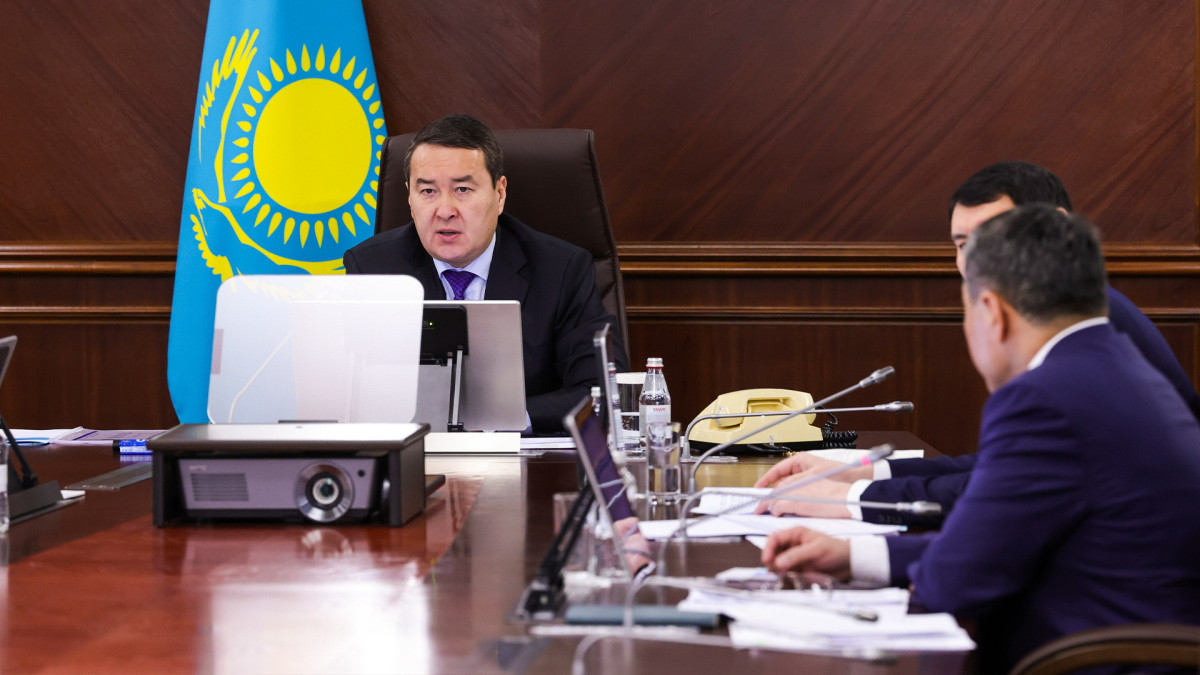
Kazakhstan plans to reduce dependence on neighboring countries for water supply

EL.KZ Информационно-познавательный портал
Issues of modernization of water infrastructure and improvement of water management system were discussed at the meeting of the Water Council of Kazakhstan under the chairmanship of the Prime Minister of Kazakhstan Alikhan Smailov, El.kz cites primeminister.kz.
As noted by the Minister of Water Resources and Irrigation Nurzhan Nurzhigitov, Kazakhstan has a total of 102.3 km3 of water, 54% of which is formed on the territory of the Republic, and the remaining 46% comes from neighboring countries. The annual consumption of economic sectors is about 25 km3 of water, of which 65% is directed to agriculture, 25% to the needs of industry.
According to the inventory results, there are 17,736 rivers and temporary watercourses, 4,024 lakes, 4,540 groundwater deposits, and 13,175 water management facilities in the country.
To ensure water security of the country and solve the problem of water scarcity, a draft Comprehensive Water Sector Development Plan for 2024-2030 has been developed. It envisages a number of urgent measures for the construction and reconstruction of reservoirs, hydraulic structures, irrigation systems and group water pipelines.
Implementation of the Comprehensive Plan will increase available water resources by 3.7 cubic kilometers, and the area of irrigated land up to 2.2 million hectares, reduce annual losses of irrigation water by 3 cubic kilometers and provide water supply to 41 settlements with a population of more than 55 thousand people.
Thus, in 2024-2026 it is planned to start construction of 20 new reservoirs with a volume of 2.4 cubic kilometers in 9 provinces. This will increase the area of irrigated land by 250 thousand hectares, reduce the threat of flooding for 70 rural settlements with a population of 137 thousand people and on average by 25% to reduce the dependence of Kazakhstan in water supply from neighboring countries.
In parallel, reconstruction of 15 existing reservoirs in 9 provinces with a volume of 1.9 km3 will begin. This will improve water availability of irrigated lands on 74 thousand hectares, reduce the threat of flooding for 64 settlements with a population of 70 thousand people.
Along with this, large-scale reconstruction of irrigation systems, digitalization of irrigation canals, modernization of the strategic Satpayev Canal, etc. will be carried out.
To stimulate agricultural producers to apply water-saving technologies, it is planned to increase the share of subsidies for the establishment of irrigation systems and the purchase of drip and sprinkler irrigation equipment from 50% to 80%. This will allow to increase the area of irrigated land with the use of water-saving technologies in the southern regions to 42% (613.6 thousand hectares) and save up to 1.5 km3 of water by 2026.
Prime Minister pointed out that domestic companies, including manufacturers of construction materials, should be actively involved in the implementation of the planned measures, and it is necessary to continue the development of space monitoring technologies in terms of determining water consumption.
Another important area is efficient water use in agriculture.
"We should annually introduce water-saving technologies on 150 thousand hectares of irrigated areas. Now the introduction is carried out on 40-50 thousand hectares per year. At the same time, in the southern regions, where there is the greatest water shortage, the volume of implementation is the least. It is necessary to develop specific mechanisms to stimulate the use of water-saving technologies by the end of the year," Alikhan Smailov said.
At the same time, he emphasized that many tasks remain unresolved. This concerns the establishment of the National Hydrogeological Service, reforming the RSE "Kazvodkhoz", the establishment of the Institute for the Caspian Sea, as well as the transfer of functions: on approval of tariffs for water irrigation, on land reclamation and groundwater monitoring, on digitization of the water sector as a whole. In this regard, the Head of the Government instructed to accelerate the work in these areas.

